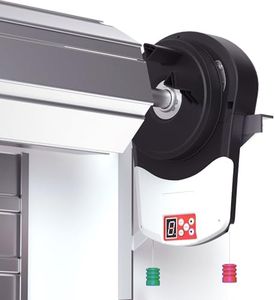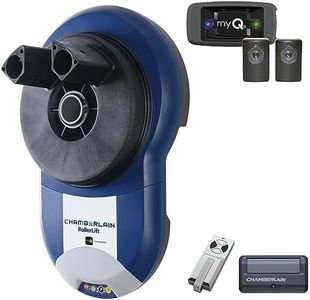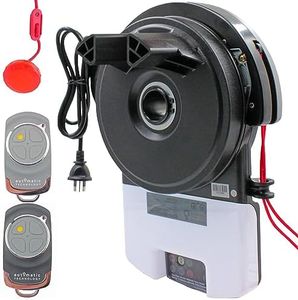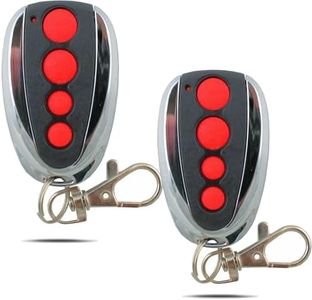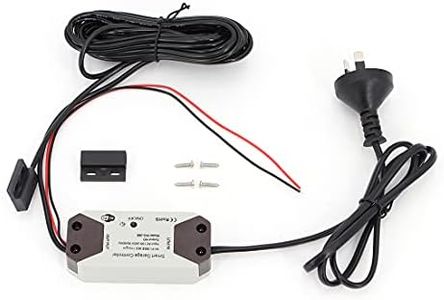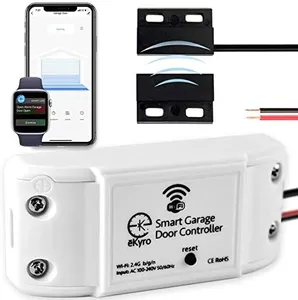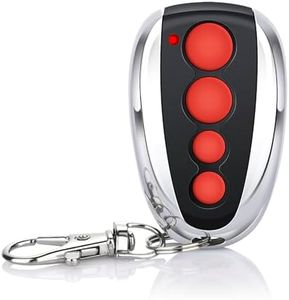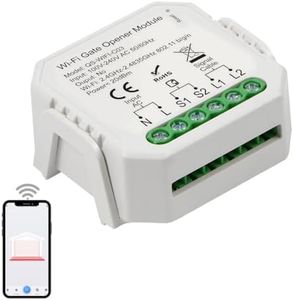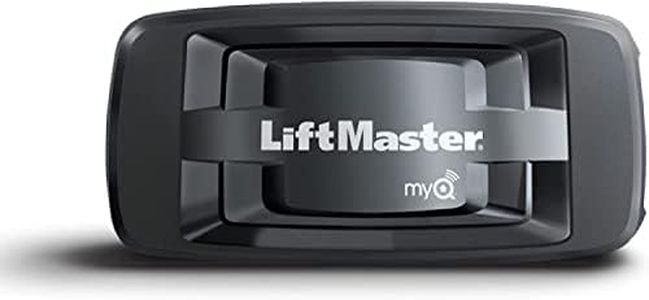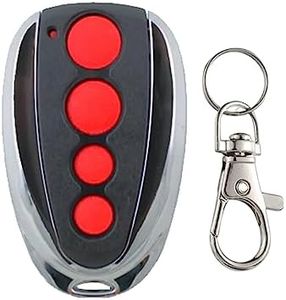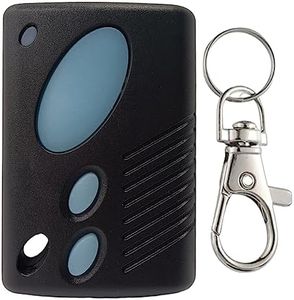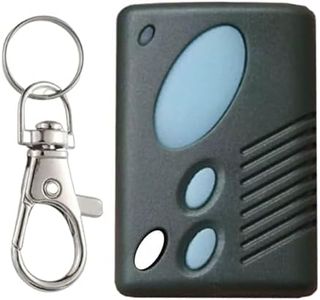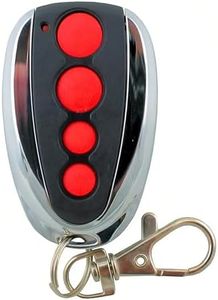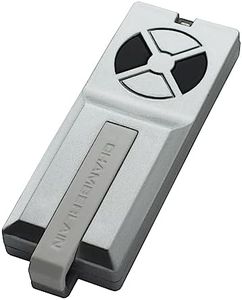We Use CookiesWe use cookies to enhance the security, performance,
functionality and for analytical and promotional activities. By continuing to browse this site you
are agreeing to our privacy policy
10 Best Garage Door Openers
From leading brands and best sellers available on the web.By clicking on a link to a third party's website, log data is shared with that third party.
Buying Guide for the Best Garage Door Openers
Choosing the right garage door opener can make your daily routine smoother, safer, and even quieter. The ideal product should match the weight and size of your garage door, meet your preferences for noise and connectivity, and provide the right level of safety and convenience. It's useful to think about your specific needs, such as whether your garage is attached to your house, how important smart features are to you, and the type of door you have.Drive TypeThe drive type refers to the mechanism that moves your garage door. Common types are chain drive, belt drive, screw drive, and direct drive. This spec is important because it impacts noise, maintenance, and durability. Chain drives are strong and good for heavy doors but are the noisiest. Belt drives are quieter, making them better for garages attached to your home. Screw drives require less maintenance and are good for simple setups, but can be sensitive to temperature changes. Direct drives are the quietest and often very reliable, though sometimes more expensive. Think about your home's setup and your sensitivity to noise—pick chain for strength, belt or direct for quiet, and screw for low maintenance.
HorsepowerHorsepower (HP) indicates the motor's strength. A higher HP opener can lift heavier doors with less strain, which is especially important for large or insulated garage doors. Ratings usually range from 1/2 HP to 1-1/4 HP. For single, lighter doors, 1/2 HP is often enough; for heavier double doors or solid wood doors, you'll want 3/4 HP or higher. Always match the opener to the weight and type of your garage door for best performance and durability.
Safety and Security FeaturesSafety and security features include things like automatic reverse sensors, rolling code technology, and manual release options. These features are essential for protecting people, pets, and your property. Automatic reverse sensors stop or reverse the door if something is in its path, while rolling code technology changes the access code each time for better protection against break-ins. If you have children or pets, or if security is a major concern, prioritize models with advanced and reliable safety systems.
Noise LevelNoise level refers to how loud the opener is during operation. It’s mostly determined by drive type and insulation. This is very important if your garage is near bedrooms or living spaces. Chain drives are loudest, belt and direct drives are much quieter, and some models have extra sound insulation. If you want peace and quiet, especially in an attached garage, focus on low-noise options.
Smart FeaturesSmart features allow you to control and monitor your garage door via a smartphone or integrate with home automation systems. These features can add convenience and peace of mind, letting you check if your door is closed or open it remotely. Some openers come with these features built-in, while others offer upgrades. If you’re tech-savvy or often wonder if you left the garage door open, choose a model with built-in smart features compatible with your devices.
Backup PowerBackup power refers to a battery or alternate power source that keeps your opener working during power outages. This is important if you experience frequent outages or need reliable access for emergencies. If consistent access is critical to you, or if your area is prone to blackouts, go for a model with a good backup power option.

